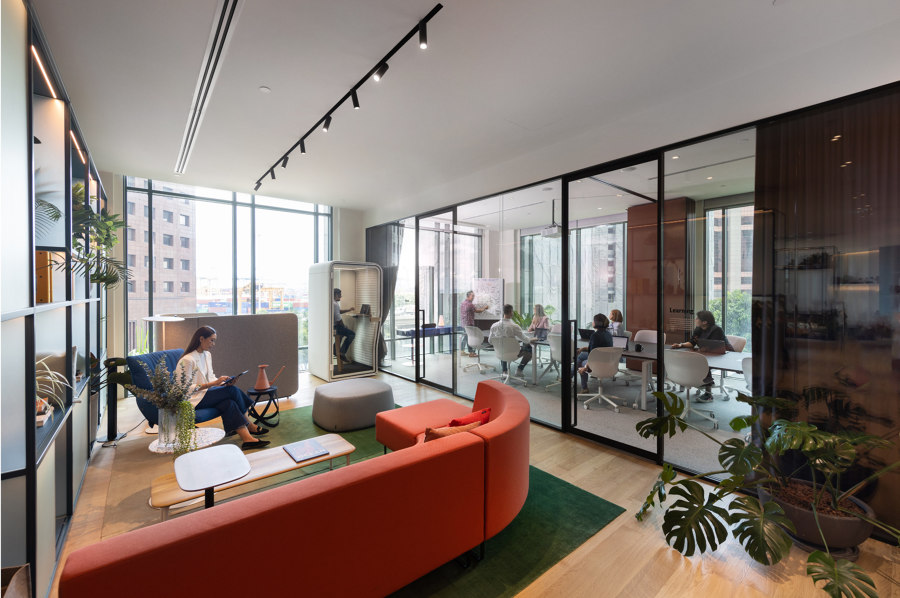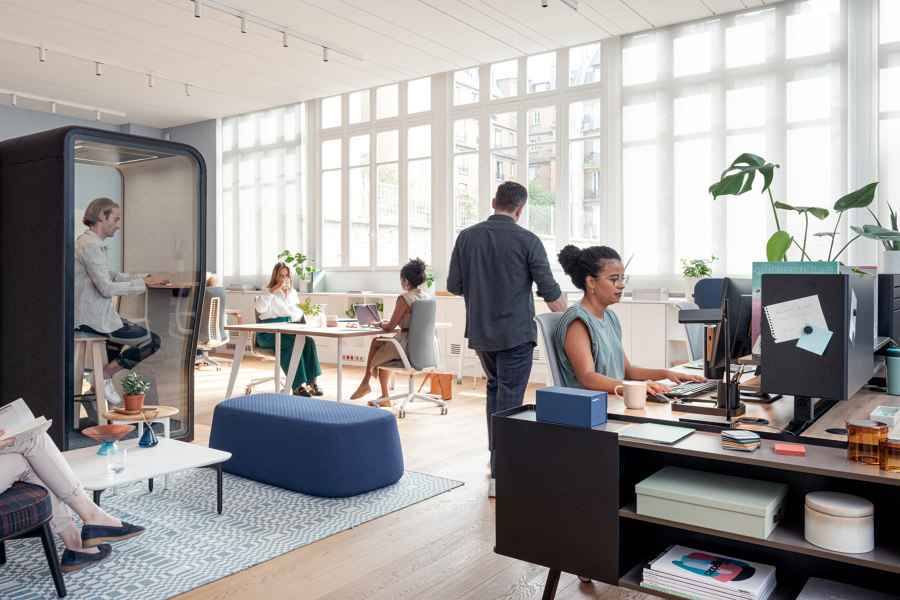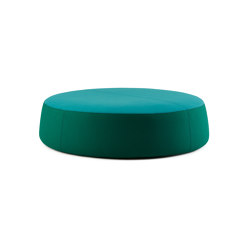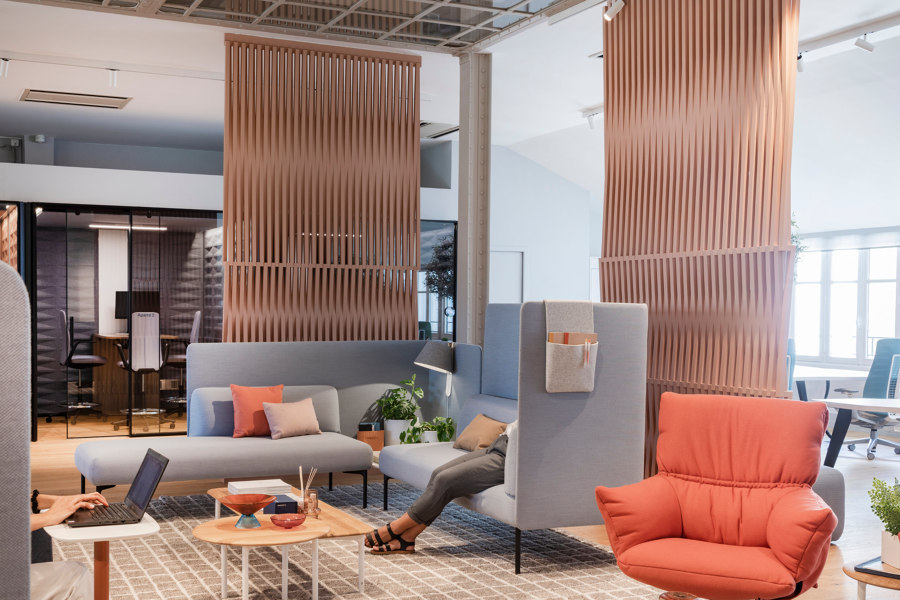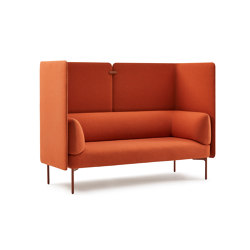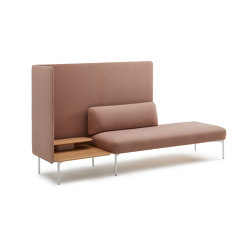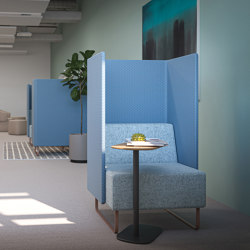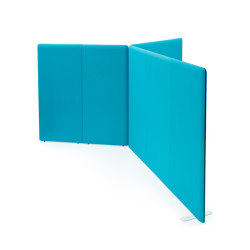Haworth: Sounding out the importance of office acoustics
Brand story by Emma Moore
Holland, MI, United States
20.03.23
More than ever before, office spaces need to offer conditions that can compete with the comforts of home, not least in terms of acoustics. With products that absorb, block and diffuse unwanted noise, Haworth is leading the charge.
People’s tolerance for sound in the workplace is different at different times. Curating acoustics requires a hybrid approach, combining areas for focused work and comfortable conditions for meeting
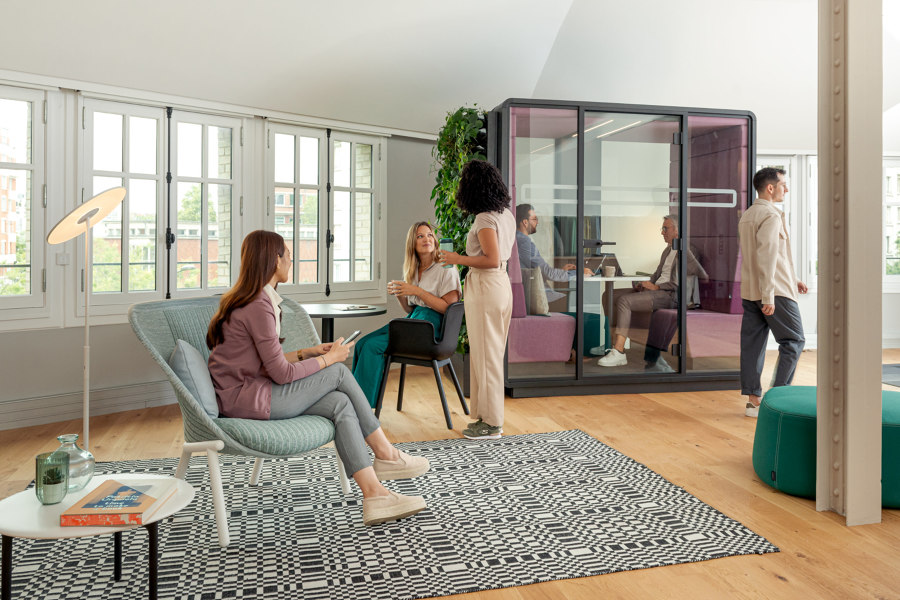
People’s tolerance for sound in the workplace is different at different times. Curating acoustics requires a hybrid approach, combining areas for focused work and comfortable conditions for meeting
×Is it the award-worthy barista skills at the third-floor coffee bar that make your days in the office bearable? Or is it being able to ring-fence a desk and height-adjusted chair and call them your own while the rest of the world hot desks? Perhaps it is knowing that the warming of your hands and toes is at someone else’s expense or that in this space you are you and not mum, dad, daughter, or husband. Or you might put it simply down to the camaraderie of the team and the common sense of purpose. One thing that is not in question, however, is that since the recent shake-up of our working practices, it matters now more than ever that productivity and wellbeing are in balance in the office, and contentment and comfort are key to both.
Choice is key: when workers are given the option to carry out quiet work in booths, privacy is protected. Secluded seating areas can diffuse sound, keeping conversations intimate
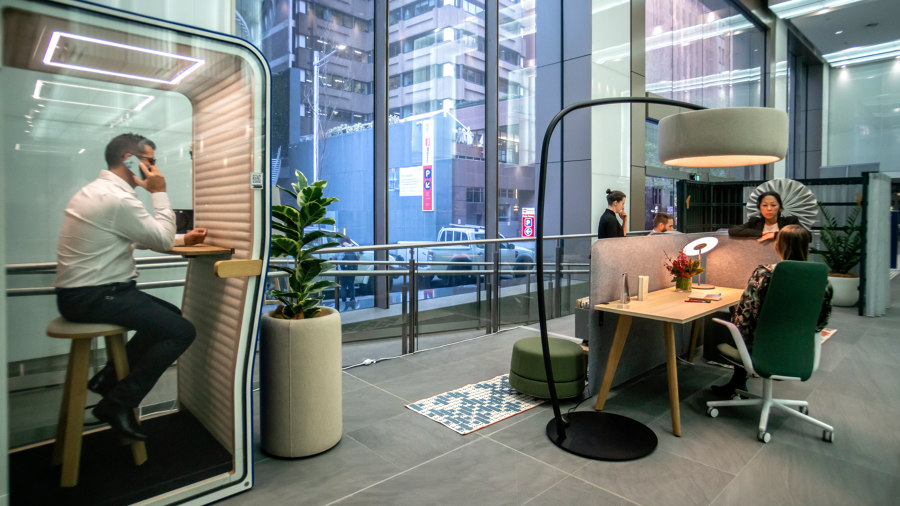
Choice is key: when workers are given the option to carry out quiet work in booths, privacy is protected. Secluded seating areas can diffuse sound, keeping conversations intimate
×Acoustics are a top factor in workplace satisfaction
Ease in the workspace clearly can be attributed to all manner of things, but something to which we might be less attuned is acoustic comfort. Leesman is a company dedicated to researching wellbeing in the workplace, or as they put it, ‘to arming organisations with data and insights that help them create outstanding workplace ecosystems to brilliantly support their colleagues, inspire teams and help businesses thrive’. Its recent survey, looking at how noise levels affect workers, discovered that noise levels are important to 71% of employees, yet only 33% find them satisfactory in their workplace.
Ease in the workspace clearly can be attributed to all manner of things, but something to which we might be less attuned is acoustic comfort
You may think your working day goes better at home because you get to hang out your washing at 11 am, but perhaps it’s that with no unsolicited aural interruptions – other than white goods noise – you simply get things done fast. With productivity maximised, employers are happy, and employees feel good about themselves. Perhaps it affords you time to make that lunchtime yoga class. It directly impacts quality of life.
Haworth has identified the ABCD of acoustic design – absorb, block, cover and diffuse. Screens and curtaining help to block noise
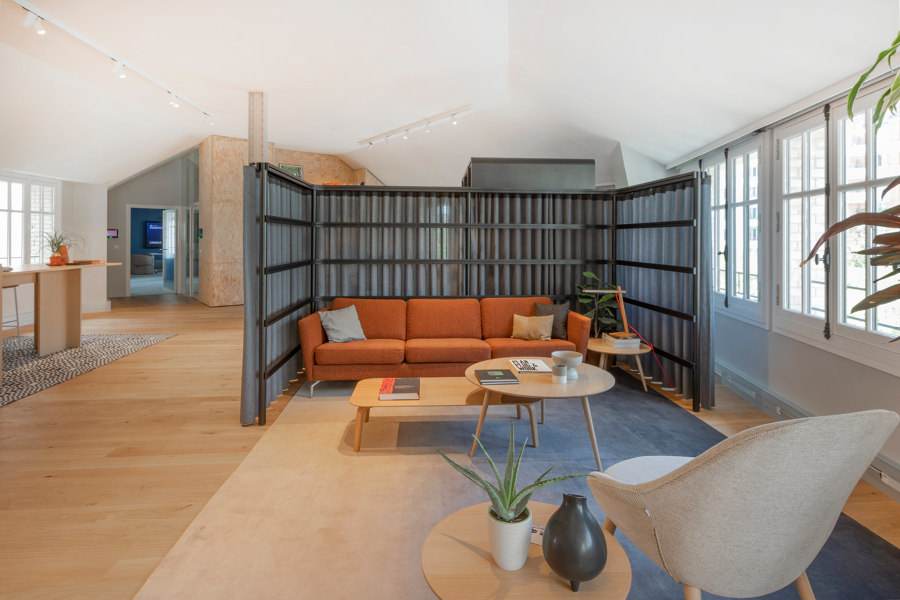
Haworth has identified the ABCD of acoustic design – absorb, block, cover and diffuse. Screens and curtaining help to block noise
×Sound impacts everyone differently
The Leesman report is of particular interest to Haworth, the global designer, manufacturer and purveyor of office furniture, whose own research team has been digging deep to uncover the diverse acoustic needs of an office in a bid to address the anomalies with intelligently designed products. Both research programmes confirm a number of complexities in achieving acoustic satisfaction; not least is the fact that everyone’s ‘bearable' is different.
Haworth's own white paper on Workplace Acoustical Performance identified the A, B, C and D of acoustic control – Absorb, Block, Cover and Diffuse
While atmosphere and buzz are sometimes deemed a must-have for a happy environment, others consider that even passing voices compromise work conditions – both individual and team. While open-plan layouts are preferred by the majority of workers, acoustic privacy is often cited as lacking. As Haworth’s team sums it up – there is no one-size-fits-all.
Haworth’s Cabana Lounge modular sofa system by Patricia Urqiola furnishes the office with a secluded space to comfortably carry out individual or collaborative work

Haworth’s Cabana Lounge modular sofa system by Patricia Urqiola furnishes the office with a secluded space to comfortably carry out individual or collaborative work
×Workspaces must offer multiple acoustic environments
The upshot? Workplaces doing acoustics well are typically providing a variety of settings, which can include quiet rooms for flexible use, phone booths, quiet areas, and more buzzy open environments. ‘Combine this with good acoustic design and you’re on to something,’ says Leesman’s report.
This is where the likes of Haworth can start to respond and have been responding with office design and furniture solutions geared towards acoustic control. Its own white paper on Workplace Acoustical Performance identified the A, B, C and D of acoustic control – Absorb, Block, Cover and Diffuse, some of which principles filter through their collection of office furnishings, and govern the precise design of certain products, such as phone booths and pods, and dividing panels such as Haworth’s own Drift which block noise. Other products are designed to fulfil one function while simultaneously absorbing or diffusing sound. We’re talking soft seating, such as Haworth’s Riverbend and Cabana Lounge sofas, or the sound-absorbing pieces from BuzziSpace which include colourful pendant lights, planters, wall tiles and totems.
Soft, sound-absorbing surfaces incorporated throughout the furnishings of an office impact the environment in two ways – they bring a homely quality while ensuring noise levels remain bearable
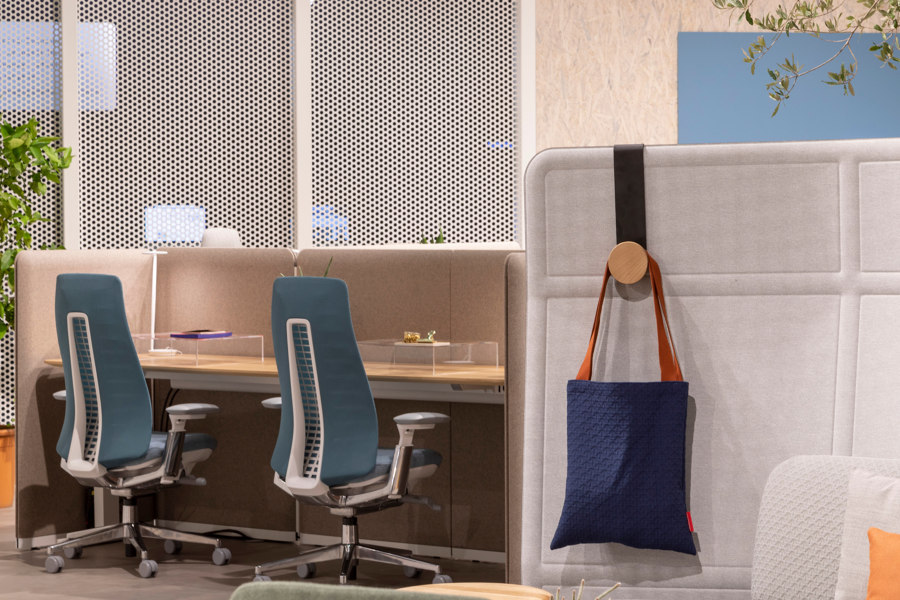
Soft, sound-absorbing surfaces incorporated throughout the furnishings of an office impact the environment in two ways – they bring a homely quality while ensuring noise levels remain bearable
בThere really is no way around it,’ concludes Leesman’s report. ‘One of the reasons why home working has been a success for many is the good levels of acoustics it typically delivers. Now is the time to do the same in the office workplace, so that the hybrid employee has a great experience no matter in which location they are working in.’ We whisper hear hear to that.
© Architonic
Head to the Architonic Magazine for more insights on the latest products, trends and practices in architecture and design.


